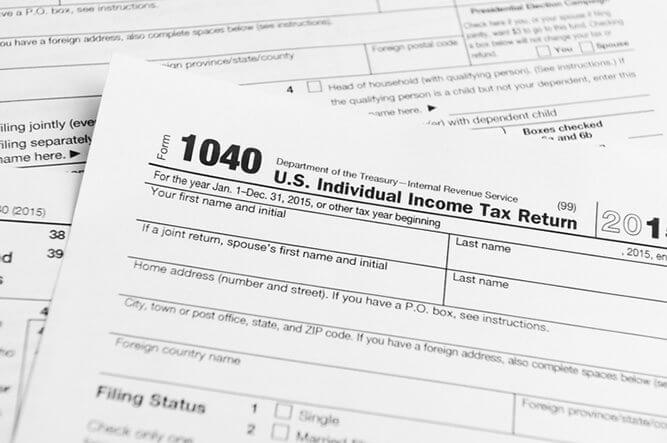
START YOUR FREE CONSULTATION
NO FEES UNLESS WE WIN!
After you’ve received compensation in a personal injury case, there are a lot of things to consider and manage. One of those things is determining the tax liability for the settlement.
Your personal injury settlement may be taxable, and it may not be taxable. The U.S. tax code is confusing, and taxes that relate to personal injury settlements are no exception. Here’s what you need to know to better understand the tax burden of a personal injury settlement.
Call (702) 382-0000 for a free consultation
What Is the Compensation For?
The first aspect to consider when determining tax liability is the purpose of the monetary compensation. Different types of compensation incur different tax liabilities.
For example, your settlement may be for medical bills, lost wages, pain and suffering, or other types of damages. Once you know the type of payment you’re going to receive, you can look at the tax liability for that kind of settlement.
Medical Bills
Generally, compensation for medical bills is not taxable. For example, consider a scenario where a customer slips and falls on a broken piece of glass on a store’s floor.
The customer breaks her arm and has $10,000 in medical bills as a result. If the store agrees to pay her $10,000 for her medical bills, this money is tax exempt.
Deductions in Prior Years for Medical Expenses
When you’re addressing the tax consequences of a personal injury settlement, another thing to pay attention to is medical expenses in previous years. If you have medical bills, you may have taken itemized deductions for those bills to reduce your tax liability. This is allowed under the tax law.
However, once you receive a settlement, you need to account for the fact that your tax liability may have changed. Any portion that you deducted in a prior year should now be included as taxable income. You need to report this as “other income” on line twenty-one of your 1040 form.
Lost Wages
Payments for lost wages are generally taxable. These payments are also subject to federal social security and Medicare taxes. You need to report this type of recovery on line seven of your 1040 as wages, salaries, tips, etc. If your recovery is for lost business income, you need to report this as business income.
What If I Have a Judgment Instead of a Settlement?
U.S. tax laws treat a judgment the same as a settlement. That is, it doesn’t matter if the court or a jury orders the other party to pay or if a person agrees to enter into a settlement. The tax laws are the same.
What About Property Damage?

Usually, payments for the destruction of property are not taxable. For example, consider a scenario where a car crashes into a mailbox, part of a house, and trees. The owner recovers $2,000 for the decreased value of the property.
Because the compensation is for property that is now worth less than it was before, the payments are not taxable. If the settlement is more than the decrease in property value, the difference is taxable as capital gains.
Interest Income
Even if the recovery itself isn’t taxable income, the interest you receive from investing the recovery might be considered taxable. For example, you recover $50,000 for pain and suffering. Next, you then invest the money and make $2,000 from the investment.
You must pay taxes on the $2,000 interest. You need to report this money as interest income in section 8a of your 1040 form.
Punitive Damages
Punitive damages are taxable no matter the reason that you receive them.
Because the purpose of punitive damages is to punish bad behavior that isn’t necessarily criminal, punitive damages aren’t treated by the IRS as compensation for any particular loss. This type of compensation goes under line twenty-one for “other income” on your 1040 form.
Tips to Keep Your Tax Burden Low
You can work with your injury attorney to ensure your taxes are as low as possible for any settlement you may receive. One thing to keep in mind is that you may need to make estimated tax payments on your settlement. Without estimated payments, you might have fees and penalties when you file.
There are other ways to minimize your tax liabilities. Your personal injury lawyer can help you create a settlement that itemizes what losses a recovery is for specifically. That can change the way the IRS taxes the money.
Also, you may structure your settlement over several years as a way to reduce overall liability. You can work with your attorney or tax professional for other ways you might be able to structure or invest the recovery to minimize your liability.
What About Nevada Taxes?
Nevada has no state income tax. Instead, the state depends on sales and use taxes for revenue. It’s always a good idea to check with a tax professional as to whether your settlement requires you to take any action in regards to state taxes.
How an Attorney Can Help
It’s important to work with a Las Vegas personal injury attorney as soon as possible when you suffer a personal injury. In addition to helping you navigate the legal system and negotiating a settlement, your attorney can also make sure to keep the tax consequences in mind as you work together to navigate the court system.
Taxes can be confusing and can end up eating a significant portion of the money you need for your recovery without the proper considerations and planning. If you or a family member has suffered a personal injury, or have questions about tax liability pertaining to an injury settlement, schedule your free consultation today.
Call (702) 382-0000 for a free consultation
Adam S. Kutner is a top 100 trial lawyer with 33 years’ experience and expertise that will benefit you
Call us at (702) 382-0000 anytime to schedule a free consultation. We will work to get you the maximum settlement as quickly as possible so you can move forward on your healing journey.
START YOUR FREE CONSULTATION
NO FEES UNLESS WE WIN!
Home visits are available
Call now for details
SE HABLA ESPAÑOL

Adam S. Kutner
PERSONAL INJURY LAWYER
With more than 33 years of experience fighting for victims of personal injury in the Las Vegas Valley, attorney Adam S. Kutner knows his way around the Nevada court system and how to get clients their settlement promptly and trouble-free.














